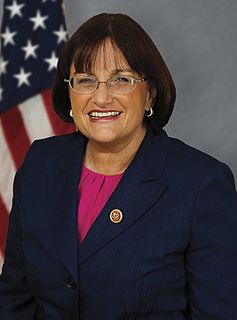A Quote by Blanche Lincoln
Many Americans are unaware that we still have a large population of working families, elderly, and children who rely on emergency food pantries, shelters, and other resources to meet their nutritional needs.
Related Quotes
Do the elected officials in Washington stand with ordinary Americans - working families, children, the elderly, the poor - or will the extraordinary power of billionaire campaign contributors and Big Money prevail? The American people, by the millions, must send Congress the answer to that question.
Egypt's priorities in fact are all related to the environment: food, water, health, energy, employment and education. Egypt is facing some very serious environmental challenges. The country has limited natural resources and has to decide how to manage these to meet the needs of a growing population.
In an era when too many Americans are losing their jobs or working for less, trying to make ends meet, in close cases Judge [Samuel] Alito has ruled the vast majority of the time against the claims of the individual citizens. He has acted instead in favor of government, large corporations and other powerful interests.
Why do we need to support the food stamp program? Because low-income families experience unemployment at a far higher rate than other income groups. Because cutting nutritional assistance programs is immoral and shortsighted, and protecting families from hunger improves their health and educational outcomes.
Many families participate in the Community Supported Agriculture movement, which allows a family to buy shares in a farmer's produce so that they know where their food is coming from, and they can take their families out and see the farm and meet the farmer. That movement has helped create a new culture around food.
I believe that the role of limited government should be looking after the needs of veterans, the elderly, children and those institutions that improve the quality of life for struggling families - I don't believe that government should bend to serve the needs of subsidized multi-national corporations and entitled billionaires.
The money economy thus leaves a large ecological footprint, defined as the amount of land and resources required to meet a typical consumer's needs. For example, with only about 4% of the world's population, the United States, the largest money economy, consumes in excess of one-quarter of the world's energy and materials and generates in excess of 25 percent of the world's greenhouse gas emissions.































